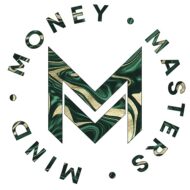There are many opposing thoughts regarding financial debt and whether or not there is such a thing as, good debt. Is all financial debt created equal? In this review of financial debt, I discuss what you may have heard regarding good debt and bad debt, whether it is always best to be debt free, and how you might be able to use debt for your advantage. One thing I can tell you is that you have probably been told many incorrect things about financial debt.
What is Financial Debt?
First of all, what is debt? Investopedia defines debt simply as money borrowed by one party from another. It goes further to describe a debt arrangement. Effectively this is an agreement whereby one party agrees to pay another party for the use of funds. They pay the giving party an interest payment on this. Interest is simply the cost to borrow the money.
Types of Loans Available
You may have heard reference of multiple types of loans out there. Loans fall into two general categories, secured and unsecured. The only major difference between them is whether or not they are backed by physical property. This can also be called collateral or a collateralized loan. Please also keep in mind that I am not a financial advisor and for more specific details on any of these topics, please reach out to your financial advisor.
Mortgage Loans

Mortgages are the most popular secured loan. They are secured because the borrower receives money to purchase the physical property. Typically these loans are 15 to 30 years and have a much lower interest rate. They offer a lower interest rate because the banks believe the money borrowed is a safe investment. Another type of mortgage loan you may have heard of is a Home Equity Loan. This is very similar to a standard mortgage loan, but has a slightly higher interest rate because this is second mortgage on your home.
Auto Loans
These would also be considered a secured loan since the borrower is using the money to purchase a physical asset which is the car. Duration for these loans are oftentimes 3 to 7 years. They typically have a higher interest rate than a mortgage loan. They are considered a riskier investment by the bank. This is because there is more depreciation on a vehicle than on a home and typically cars do not increase in value. For more on reasons why interest rates vary, please read my post on Personal Credit.
Student loans
These loans are considered unsecured since there is no collateral that the lender is giving money against. However, they are treated differently than typical unsecured loans due to government stipulations and intervention. These loans can vary widely in payment terms and interest rates. The ideal time for student loan repayment is 10 years.
Credit Cards as Financial Debt

These are the primary example of an unsecured loan and offer a borrower access to funds up to a limited amount. These are more often than not actually considered “lines” of credit. A loan gives all the money upfront but a line offers access to money. This type of credit typically has no set repayment schedule. Banks design credit cards to keep the borrower in debt for as long as the borrower has the card. In this way, they receive a perpetual payment from offering credit cards.
Other Loans
There are many types of loans in the market. The four above are incredibly common, but there are personal loans, medical loans, business loans, and construction loans. Lenders will basically issue a loan for anything that a borrower would need money for.
Good Financial Debt versus Bad Debt
Many financial advisors offer that all financial debt is bad and that, we should live a debt free lifestyle. I would differ greatly with that perspective. I would suggest that financial debt can be a tricky vehicle to maneuver, if you do not have a good understanding of how to use it. In my experience financial debt can be very useful and offer a wide array of benefits.
Leverage
Financial debt offers the borrower the ability to use the financial institutions money to purchase an item, that they may or may not have originally had enough cash for. I would agree that if you are using debt to buy the hot new consumer product out there, then that is a bad use of debt. However, if you are using debt as an ability to purchase an asset, then that may be a wise financial decision.
Assets and Liabilities

An asset is anything of value or having value. If you had an accounting class in high school or college, you probably learned this. Typical assets include cash and equivalents, property, businesses and other intangible assets such as brand name and goodwill. I would like to consider an asset as anything that produces positive cash flow. Liabilities are anything opposite. Typically something that someone owes. My interpretation of a liability is anything that you pay for, which doesn’t generate cash flow beyond what you are paying for it.
Your Home is not Your Biggest Asset
Let me go into more detail. I do not believe that your house is your biggest asset. This is typically contrary to most financial advisors. Your house can be an asset, but I would not consider it an asset unless it’s completely paid off. If we go back to the original definition of an asset, how does your home make you money? Think of this way, if you had no money to pay for your mortgage, does the house pay for itself? No. If you do not pay your mortgage, the bank, who owns the house, forecloses on the mortgage and takes the house away. So the house is an asset for the bank, not for you.
If however, you take a mortgage out on a rental property and have a tenant rent from you and they pay you a monthly rent, that house could be an asset. From a personal finance perspective, an asset is only something that offers you positive cash flow. Similarly, if you take out a loan to fund a business venture and your sales per month pay the cost of the loan, that business is an asset. I’m drawing the distinction here for a purpose. If we understand truly how assets and liabilities work, we can build better assets.
Disclaimer: I receive affiliate compensation for some of the links in this article at no cost to you. However, these are the best tools I have used and tested that I believe are most effective for launching and running an online business. You can read our full affiliate disclosure in our privacy policy.
How can Financial Debt be good?
So is it always best to live debt free? That was the big question at the beginning, wasn’t it? I would say no. But that is also because I am an entrepreneur and business owner. Plus I used financial debt as leverage to build my business. Using financial debt for business can offer the necessary leverage to build faster side hustles. Also, you can take advantage of tax benefits using leverage while building a business.
However, if you are judging from a personal perspective and a 9 to 5 is your only source of income, then perhaps being debt free is a better way to be. Being in debt may be a bad thing, if you are not buying assets using your debt. If the cash flow that you earn from your assets pay the debt, then that is the best situation to be in.
Tax Advantages
Another value you have in owning your own business are tax advantages, but please consult with your tax advisor on this. There are many tax credits that people can take during the general process of starting and running a business. Obviously, we don’t want to start a business purely to avoid taxes, but there are many advantages.
Side Hustles
I would encourage everyone to have a business or work on a “side hustle”. They are plentiful. Did you know that most millionaires have seven streams of income? Everyone should have multiple side hustles. There is so much time available in the day to work on an opportunity to build a business for financial freedom. You have to find the available time. If that means making sacrifices of things that are non-essential or making time elsewhere, we can all find an extra 30 minutes per day. Check out my post on ‘The Mindset of an Entrepreneur‘ for more tips and information on becoming your own boss.
Conclusion
I hope this brief discussion surrounding financial debt was beneficial to you. This post is designed to give you only an introduction to the world of financial debt and some pros and cons within. Using debt as leverage can be a good long term business plan, but it requires diligent focus and detailed planning to be successful. Many successful people use debt in a positive way and I would suggest leaning on their experiences.
If you want to learn more, one book I would recommend is ‘The Cash Flow Quadrant’. It will go into further detail around assets and liabilities. Another book to check out is ‘Credit is King‘. It will discuss how important credit is and how controlling financial debt is so important. Thank you for staying until the end and I wish you all great amounts of financial success!
Before you go…
Do you want to learn how you can take ANY business and scale it to your dreams and goals?
Partner up with me by clicking on this link and watching the video.
We will show you EXACTLY how to build a business online and customize a plan just for you. We will help you choose a niche, setup your online business and help with selecting offers that you can promote.
On top of that you will get ONE on ONE mentoring to make sure you are doing things right.
A great way to be able to save more money is when we make more money.
Cheers to your success and See you at the Top!
-Cameron


